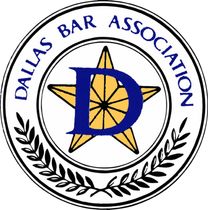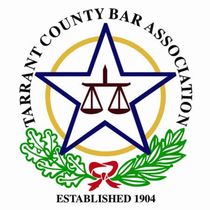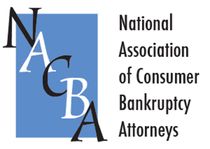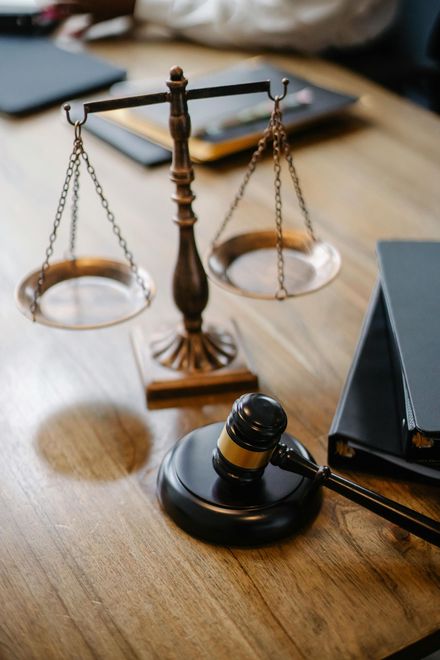over 40 Years of Winning Cases in the DALLAS-fort worth metroplex AND SURROUNDING COUNTIES SINCE 1985.
WITH LOCATIONS CONVENIENTLY LOCATED IN in Arlington and Grand Prairie, servicing the Dallas Fort-Worth Metroplex
aggressive, DEDICATED AND EXPERIENCED FULL SERVICE LAW FIRM
FAMILY LAW, criminal law, bankruptcy and civil litigation
(SPEAK DIRECTLY WITH AN ATTORNEY EVEN AFTER NORMAL BUSINESS HOURS AND ON WEEKENDS)
Family law covers a wide variety of issues that affect the family. While divorce cases make up a large part of any family law practice, also included are other areas such as child custody, access, visitation and possession, and child support issues in suits involving the parent-child relationship and modification of prior orders that you may be dealing with. In addition, many people face enforcement and contempt proceedings, attorney general suits, as well as termination of parental rights and adoption cases that require legal expertise. Our experienced attorneys and compassionate staff can assist in helping you navigate the family law court system and procedures.
FAMILY LAW
DIVORCE LAW
If you are considering or facing a divorce we can guide you through the process in order for you to make the best possible decisions concerning your particular situation. Whether you are dealing with questions concerning community and separate property issues in Texas, tax liability, child custody, possession, and access, and/or child or spousal support in a divorce action or you are seeking to gain or maintain custody or visitation during this emotional time, it is sometimes difficult to make the best decisions. During such a critical time in your life, you need the experienced attorneys and support team at Davis, Ermis & Roberts, P.C.
BUSINESS TRANSACTIONS AND LITIGATION
When it comes to business transactions and litigation we have proven success over the years in matter involving business formation, incorporations, structuring mergers, acquisitions and other corporate transactions. Our attorneys can structure and prepare agreements involving investment transactions and capital formations. You can be certain our business law attorneys will staunchly defend your best interests in litigation involving breach of contract, breach of fiduciary obligations between owners and collection of receivables. A good understanding of corporate tax law is also crucial to the bottom line of your business. Davis, Ermis & Roberts, P.C. will guide you through every type of business transaction, from mergers and acquisitions to project financing and corporate reorganizations to business tax law concerns and compliance.
BAIL BONDS
Davis, Ermis & Roberts, P.C., offers an unparalleled approach to securing your freedom through attorney-posted bail bonds. Understanding that legal challenges can be overwhelming, our team provides a comprehensive solution that goes beyond the standard bail bond process. By choosing our attorney-posted bonds, clients gain a financial advantage, as part of the bond fee is credited toward legal fees, easing your financial burden. This service integrates expert legal guidance with bail assistance, ensuring a smooth and strategic journey through the criminal justice system, tailored to each individual's unique needs.
CRIMINAL LAW
When facing a criminal charge, which may involve probation, fines and possible incarceration, you need to have an aggressive attorney on your side. At Davis, Ermis & Roberts, P.C. we handle all felony and misdemeanor cases, whether you are charged with driving while intoxicated, possession of controlled substance, theft, failure to identify, driving while license suspended, criminal mischief, aggravated assault, sexual assault, murder, intoxicated manslaughter or possession of a deadly weapon we can provide the best defense for you. In addition, we extend our expertise to providing post-conviction services such as Non-Disclosures and Expunction of certain charges where applicable.
BANKRUPTCY
Our attorneys have extensive experience in federal consumer and business bankruptcy cases. We help individuals and businesses obtain a fresh start or restructure. Financial stress can be alleviated and your assets such as your home, automobiles and personal can be saved, by the filing of a bankruptcy case. In the case of a business or corporation, our law firm can assist in the liquidation or reorganization of the business entity through the federal bankruptcy laws. Attorneys consult with you on a free consultation to analyze and discuss all possible viable options specifically tailored to meet your needs. We can help you: Stop Foreclosure, Stop Repossession, Stop IRS Federal Tax Levy or Wage Garnishment, Stop Student Loan Garnishment, Stop Creditor Judgment Action, Eliminate Credit Card Debt, Medical Bills and Catch Up on Mortgage Arrears.
Why Choose DAVIS, ERMIS & ROBERTS, P.C.?
In the complex world of law, you need a guide who’s seen it all. At Davis, Ermis, & Roberts, we’ve been your neighbors’ go-to legal team for four decades, fighting for justice in Arlington and Grand Prairie, servicing the Dallas Fort-Worth Metroplex.
The Problem
Legal challenges can feel overwhelming. Whether it is a family dispute, criminal charge, or financial crisis, the stakes are high, and the system can seem stacked against you.
The Solution
Enter Davis, Ermis, & Roberts, P.C. – your experienced legal team. With more than forty (40) years of courtroom victories and a deep understanding of federal, state and local laws, we are here to level the playing field.
Why Choose Our Lawyers?
- Trial-Tested Excellence: Our attorneys do not just settle – we win in court. When your future is on the line, our courtroom expertise makes all the difference.
- Clear Communication: We speak your language, not legalese. You will always know where your case stands and what comes next.
- Local Knowledge: With offices in Arlington and Grand Prairie, we have an intimate working knowledge the Courts, Judges, and the local legal landscape through the Dallas-Fort Worth Metroplex and surrounding counties.

Book a free in-depth consultation with the Davis, Ermis, & Roberts, P.C. Legal team.

About The Davis,ERmis & roberts, p.c. law Firm
The law firm of Davis, Ermis & Roberts, P.C. believes that high-quality, experienced legal representation should be accessible to everyone. We are a full-service law firm offering a variety of legal services to meet your immediate and long-term needs.
Our experienced attorneys and legal team are dedicated to providing the highest quality legal representation while offering affordable payment options. Our attorneys and legal team bring a unique array of legal expertise and experience to the firm of Davis, Ermis & Roberts, P.C.
We service all the civil and criminal courts in Dallas, Tarrant, Rockwall, Collin, Johnson, Parker, Denton, Wise and Ellis counties and are available after hours when most lawyers choose to forward the phones to voicemail.
We also offer evening and Saturday consultations by appointments for your convenience.
Meet Our Experienced Attorneys and Legal Team
Ronald W. Roberts, founding member and senior attorney for the firm, brings more than forty (40) years of trial experience and knowledge to our multi-faceted practice lending his expertise in cases involving family law, criminal defense, corporate services, civil litigation, business litigation, estate planning and wills.
Craig D. Davis brings more than thirty (30) years of legal experience to the firm with his extensive knowledge of consumer and business bankruptcy.
Jeffrey W. Ermis brings more than twenty (20) years of legal experience to the firm providing his knowledge a courtroom experience to our clients in matters involving family law, criminal defense, civil litigation and bankruptcy law.
WE CAN ALSO GET YOUR LOVED ONES OUT OF JAIL
Get Both Bail and Legal Representation and Save Some Money
- A portion of Bond Fees Credited Towards Attorney Fees
- Twenty-Four (24) Hour Jail Release (or less, in most cases)
Your Path to Justice
1. Call Us
Schedule your free, in-depth, consultation
2. Meet Your Attorney
We will listen to your problems and outline your options
3. We Fight for You
Rest easy knowing seasoned professionals are in your corner
Take Action Now
Do not let legal worries keep you up at night. With Davis, Ermis, & Roberts, you are choosing forty (40) years of proven success and a team that treats you like family.
Family Owned and Operated Since 1985.
“When experience counts, call the firm who will always take your call.”
Serving Tarrant County, Dallas County and surrounding counties since 1985.
Military and First Responder Discount Offered.

BOOK A FREE DIVORCE CONSULTATION
Are you facing a legal issue that has you worried about the future? Our Law firm provides high-quality legal services.
WE ARE PROUD MEMBERS OF THE FOLLOWING ASSOCIATIONS
DALLAS BAR ASSOCIATION MEMBERS

UNITED STATES DISTRICT COURT FOR THE NORTHERN DISTRICT OF TEXAS

TARRANT COUNTY BAR ASSOCIATION

NATIONAL ASSOCIATION OF CONSUMER BANKRUPTCY ATTORNEYS


When you decide to end your marriage, it is very important that you understand your rights and obligations.
WHEN EXPERIENCE COUNTS CALL THE FIRM WHO WILL ALWAYS TAKE YOUR CALL.









